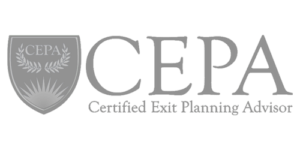When it comes to securing a business loan, understanding the collateral requirements is crucial. The Small Business Administration (SBA) offers various loan programs, including SBA secured loans, that can provide businesses with the financing they need. However, these loans may require collateral to help mitigate the lender's risk.
The SBA 7(a) loan, which is one of the most popular loan options, may require collateral depending on the loan size and the available assets of the business. Collateral options for SBA loans include project real estate, residential real estate, and investment real estate. Additionally, businesses can use equipment, inventory, and other assets to meet the collateral requirements, providing flexibility for different types of businesses.
It's important to note that if a business does not have enough collateral to secure the loan, the lender may require the borrower to take a lien on their residential and investment real estate. However, it's worth mentioning that there are exceptions to this requirement for loans under $350,000, where the SBA does not typically require collateral.
To get a detailed understanding of the collateral requirements for SBA loans, it's advisable to consult the SBA loan collateral requirements guide. This resource provides valuable insights into the specific qualifications and criteria for different types of collateral.
Key Takeaways:
- SBA loans, including SBA secured loans, may require collateral based on loan size and available assets.
- Collateral options for SBA loans include project real estate, residential real estate, investment real estate, equipment, and inventory.
- Loans under $350,000 may not require collateral; however, exceptions may apply.
- Businesses with insufficient collateral may need to take a lien on residential and investment real estate.
- The SBA loan collateral requirements guide provides detailed information about qualifying collateral.
Understanding SBA 7(a) Loans and Collateral
SBA 7(a) loans are a popular choice among businesses due to their lenient lending criteria, favorable terms, and flexibility in approved uses. These loans provide opportunities for businesses to secure financing for various purposes such as working capital, equipment purchase, inventory, and real estate.
When applying for an SBA 7(a) loan, collateral may be required to secure the loan. Collateral serves as a way for lenders to mitigate risk and ensure repayment. To qualify for a fully secured loan, businesses need to have assets that can be pledged as collateral. These assets can include:
- Real estate: The value of real estate, including project real estate, can be considered as collateral. The maximum loan-to-value ratio for real estate collateral is 85% of the market value.
- Machinery and equipment: Businesses can use machinery and equipment to secure the loan, with a maximum loan-to-value ratio of 75% of the price.
- Trading assets: Trading assets, such as inventory, can be considered as collateral, with a maximum loan-to-value ratio of 10% of the current book value.
However, if the value of the collateral falls short of the loan amount, additional collateral may be required. In such cases, residential and investment real estate may need to be used as collateral. Personal guarantors may also be considered to strengthen the loan application.
Example:
| Collateral Type | Maximum Loan-to-Value Ratio |
|---|---|
| Real Estate | 85% of market value |
| Machinery and Equipment | 75% of price |
| Trading Assets | 10% of current book value |
By understanding the collateral requirements for SBA 7(a) loans, businesses can prepare accordingly and improve their chances of securing the financing they need for growth and success.
SBA Community Advantage Loans and Collateral
SBA Community Advantage loans are a type of 7(a) loan designed to support businesses in underserved areas. These loans provide access to capital and resources, enabling small businesses to thrive and contribute to the local economy. Just like other 7(a) loans, Community Advantage loans might require collateral to secure the lending. Let's explore the collateral requirements for Community Advantage loans and how they compare to other 7(a) loans.
Collateral Requirements for Community Advantage Loans
When it comes to collateral requirements, Community Advantage loans align with the guidelines followed for other 7(a) loans. The Small Business Administration (SBA) does not typically require collateral for loans under $350,000. However, it's important to note that individual lenders may still request collateral based on their own lending policies. These lenders understand the need for additional security when financing small businesses and consider collateral as an important factor.
Business owners seeking a Community Advantage loan should be prepared to provide collateral if requested by the lender. Collateral can be in the form of residential real estate, investment real estate, equipment, inventory, or other valuable business assets. Residential and investment real estate are common types of collateral accepted for these loans, with certain restrictions and considerations in place.
Collateral Considerations for Community Advantage Loans
When using residential or investment real estate as collateral for a Community Advantage loan, businesses should be aware of certain factors. First and foremost, the property being offered as collateral must meet the lender's requirements. This includes factors such as market value, condition, and location. Lenders will typically conduct an appraisal to assess the value of the property and determine its suitability as collateral.
Additionally, business owners need to consider the potential implications of pledging their personal properties as collateral. By securing the loan with residential or investment real estate, there is a risk of losing these properties in the event of loan default. It's important to carefully evaluate the financial situation and consider the long-term consequences before using personal assets as collateral.
Sample Collateral Comparison Table
| Collateral Types | Collateral Considerations | |
|---|---|---|
| SBA Community Advantage Loans | Residential real estate | – Property must meet lender's requirements – Risk of property loss in case of default |
| Investment real estate | – Property must meet lender's requirements – Risk of property loss in case of default |
It's essential for business owners to have a clear understanding of collateral requirements and considerations when considering a Community Advantage loan. By carefully evaluating the loan terms, collateral options, and potential risks, entrepreneurs can make informed decisions that align with their business goals and financial capabilities.
SBA 504 Loans and Collateral
SBA 504 loans are a popular financing option for small businesses looking to purchase fixed assets like real estate and heavy equipment. These loans provide favorable terms and long repayment periods, making them an attractive choice for business owners.
The collateral requirements for SBA 504 loans vary depending on the lender and the type of asset being financed. In general, the assets acquired with the loan serve as collateral. This means that if the borrower defaults on the loan, the lender can seize and sell the assets to recoup their losses.
However, special-purpose properties financed with SBA 504 loans require an additional 5% equity as collateral. These properties are tailor-made for specific industries or businesses and include hotels, restaurants, data centers, and other similar establishments. The additional equity ensures that the lender has extra protection in case of default.
It's important for borrowers to understand the collateral requirements for SBA 504 loans before applying. This will help them prepare and gather the necessary assets to secure their loan. Working with an experienced SBA lender or Certified Development Company can provide valuable guidance and ensure a smooth loan application process.
Personal Guarantees for SBA Loans
When seeking an SBA loan, business owners should be aware of the personal guarantee requirement. Personal guarantees are a standard practice in SBA lending, providing assurance to the lender that the borrower will fulfill their repayment obligations. In most cases, any business owner who holds a 20% or greater ownership stake is required to provide a personal guarantee for the loan.
This guarantee extends the borrower's liability beyond the business itself, meaning that personal assets may be used to repay the debt in the event the business cannot meet its obligations. This added layer of security allows lenders to mitigate risk and increases the likelihood of loan approval.
It's important to note that personal guarantees may also be required from spouses and trusts with ownership interest in the business. Lenders consider these additional guarantors as an extra safeguard against default. Therefore, business owners with such relationships should prepare to provide personal guarantees when applying for an SBA loan.
By requiring personal guarantees, lenders aim to ensure that borrowers have a high stake in the success and longevity of their business. This shared liability strengthens trust between lenders and borrowers and encourages responsible financial management.
| Key Points: |
|---|
| Personal guarantees are a common requirement for SBA loans |
| Owners with 20% or greater ownership stake are typically required to provide guarantees |
| Spouses and trusts may also be required to guarantee the loan |
| Guarantees extend the borrower's liability to personal assets |
Collateral Requirements for SBA Loans
SBA lenders have varying collateral requirements for loans. When it comes to SBA loans under $50,000, collateral is typically not required. However, for loans exceeding $50,000, collateral policies similar to non-SBA loans may come into play. Lenders may require liens on specific assets purchased with the loan, as well as other fixed assets of the business. Depending on the lender and loan program, personal assets may also be requested as collateral.
SBA Loan Collateral Policies
The collateral policies for SBA loans depend on the lender's guidelines and the specific loan program being used. While the SBA itself does not set strict collateral requirements, lenders have the discretion to determine the level of collateral needed to mitigate their risk. Collateral helps protect the lender's investment by providing them with a way to recover their funds should the borrower default on the loan.
Types of Collateral Accepted for SBA Loans
SBA lenders typically accept a variety of collateral options to secure loans. These may include:
- Real Estate: Project real estate, residential real estate, and investment real estate can be used as collateral for SBA loans. The value of the real estate is assessed, typically at a maximum percentage of its market value.
- Equipment and Inventory: Business assets such as machinery, equipment, and inventory can also be used as collateral. The value of these assets is evaluated based on their purchase price or current book value.
- Other Assets: Lenders may consider other assets, such as accounts receivable or intellectual property, as collateral depending on their value and marketability.
The specific collateral requirements will vary depending on the lender and the nature of the business. It is important for business owners to discuss collateral options with their SBA lender and understand the potential consequences of using specific assets as collateral.
| Loan Amount | Collateral Required |
|---|---|
| Under $50,000 | No collateral typically required |
| Over $50,000 | Collateral policies similar to non-SBA loans may apply. Lenders may require liens on specific assets purchased with the loan, as well as other fixed assets of the business. Personal assets may also be required as collateral. |
Alternatives to Collateral and Personal Guarantees
In some cases, small business owners may prefer to explore alternatives to collateral and personal guarantees when seeking financing for their ventures. While collateral and personal guarantees are common requirements for SBA loans, there are other options available that may suit different business needs and circumstances.
One alternative to consider is unsecured business loans. These loans do not require collateral, allowing business owners to secure financing without risking their personal or business assets. Unsecured loans typically rely on the borrower's creditworthiness and business performance as the primary factors for loan approval, making them an attractive option for businesses that may not have substantial collateral to offer.
However, it is important to note that even with unsecured business loans, personal guarantees may still be required by some lenders. Personal guarantees provide additional assurance to the lender by holding the business owner accountable for loan repayment if the business is unable to meet its financial obligations.
Another option to explore is obtaining business credit cards without personal guarantees. While these credit cards may have higher interest rates compared to traditional loans, they offer flexibility and convenience for managing day-to-day business expenses. Business owners can use these credit cards for purchases, cash flow management, and building business credit, without the need to provide personal guarantees.
When considering these alternatives, it is essential for business owners to carefully evaluate their financing needs, review the terms and conditions offered by lenders, and assess the potential risks and benefits associated with each option. Additionally, it can be helpful to consult with financial advisors or SBA-approved lenders who can provide guidance and support in navigating the various financing options available.
Conclusion
Understanding the collateral requirements and personal guarantee policies for SBA loans is essential for small business owners seeking financing. These requirements ensure that lenders have a level of security when providing loan financing options. Collateral, such as real estate, equipment, and inventory, can serve as valuable assets to meet the collateral requirements for SBA loans.
While collateral and personal guarantees may be necessary for securing SBA lending, there are alternatives available for entrepreneurs who may not have adequate collateral or prefer not to provide personal guarantees. Consulting with SBA-approved lenders or Certified Development Companies can provide valuable insights into loan financing options that suit individual business needs.
It is important to thoroughly explore the various loan financing options available and evaluate the pros and cons of each. Unsecured business loans and business credit cards without personal guarantees are viable alternatives to consider. These options may offer more flexibility, although they may come with higher interest rates or stricter eligibility criteria. Small business owners should carefully assess their financial situation and seek professional advice to make informed decisions about their loan financing options.










